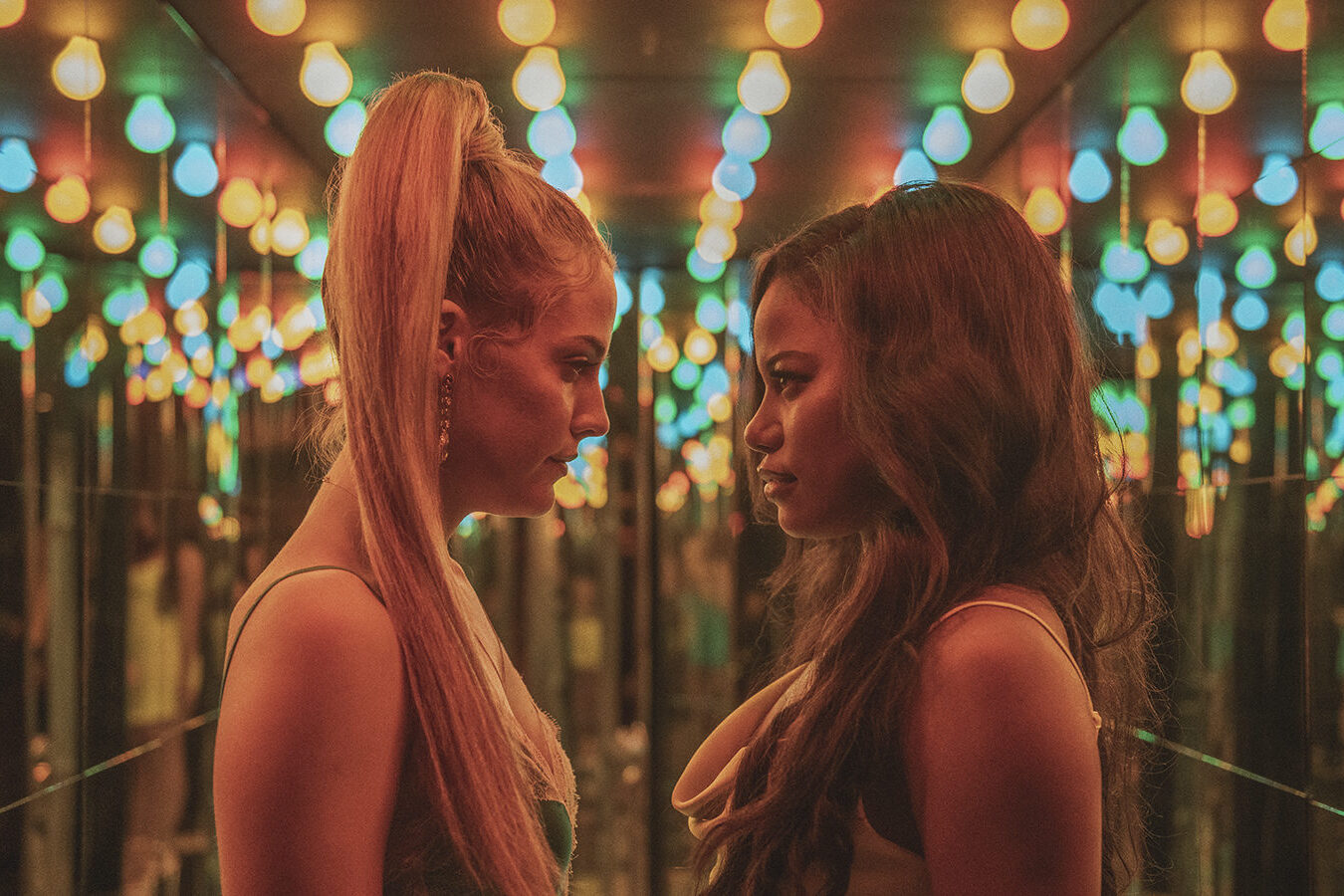“If you ask me what I came to do in this world, I, an artist, will answer you: I am here to live out loud.” Who better than Émile Zola to comment on Janciza Bravo’s new movie and his namesake, Zola? The naturalist Émile Zola would appreciate this sordid slice of America Pie cooked on social media in the last days of Obama’s presidency as Trump’s virulent, far-right cancer infected the country. Zola is a gonzo road trip into the void of humanity, a humanity fuelled with sex, money and viral affirmation, a humanity that thrives so much on degradation and humiliation that it voted for a president who was happy to oblige them all the way to insurrection.
The film is based upon the infamous 2015 Twitterstorm comprised of 148 messages written by A’Ziah “Zola” Wells that began with the killer line, “Y’all wanna hear a story about why me & this bitch here fell out???????? It’s kind of long but full of suspense.” Exotic dancer Zola hooks up with Stefani whilst waiting on her in a sports bar. Zola, a black woman dressed as a cowgirl and Stefani, a white woman with an accent straight out the Iggy Azalea play book of cultural appropriation (although even Stefani doesn’t jump the shark and blackfish like Azalea in her I am The Strip Club video), show an America in cultural flux, racial identity inverted, black, and white working-class women ready to back each other up before spiralling into proxy civil war.
Zola and Stefani, both dancers, live out loud in a netherworld where reality and social media have become symbiotic in a way Gen Xers will never appreciate. Bravo resolves this as she peppers the soundtrack with bells and whistles, constant Twitter alerts that herald Zola’s stream of consciousness, undercutting the mounting trauma of their impromptu journey to Florida. In their quest to make serious money, viewed through the barrier of a phone screen, all social norms of decency become mitigated, and then perverted into a perpetual movie that never ends. Booming bass inside a jet-black Mercedes jeep is the new, “opium of the people” so pole dancing morphs to prostitution and prostitution to sex trafficking.
When Tyler Durden in Fight Club says, “We’ve all been raised on television to believe that one day we’d all be millionaires, and movie gods, and rock stars. But we won’t. And we’re slowly learning that fact,” the one-way traffic of media in the 90s at least allowed Gen X to come to that realisation. Stefani and her doofus boyfriend Derrek both raised on social media, so as prosumers, fame and fortune seems so tangible they will never learn, only chase the illusion again and again as guns, dick and scorn point at them on camera. Stefani chases dollars for her baby and Derrek confuses humiliation with chivalry. In naturalist terms they are humans unable to control their destiny, reduced to primal urges by forces they cannot control (and presumably why they will vote for Trump in 2016).
In contrast Stefani’s pimp, X, manipulates his white trash charges with ruthless efficiency. Stefani and Derrek seem so disconnected from any reality that they crave affirmation from black America by appropriating the worst media stereotypes in a desperate attempt for any acceptance. X is only happy to oblige them and at one point destroys Derrek’s last shred of dignity by making him take Stefani to her tricks. Zola retains her agency throughout. She revels in her dancing prowess and her survival instincts kick into overdrive once she realises she’s in deep shit. Her facial expressions throughout her ordeal show a bemused, horrified, but savvy spectator that will triumph and rise above the murky world she finds herself in.
The abrupt ending promises hope for all those involved. Émile Zola believed in the capacity for humans to make moral progress no matter how powerful those forces arranged against it, or from the squalor humanity had to overcome. We see Zola, Stefani, Derrek and X driving together again after a shocking injury. The camera prowls after the jeep and in that space, humanity may win through. “Sin ought to be exquisite,” Émile Zola said and in the raucous company of Taylour Paige as Zola, Riley Keough as Stefani, Nicholas Braun as Derrek and Colman Domingo as X he is right.

